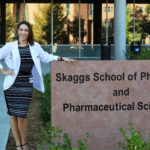Thanksgiving Thoughts
Thanksgiving is the traditional time of year to gather with family or friends.
While the holiday is a relatively carefree day, there are still some concerns that folks worry about … in addition to the Black Friday sales.
Many folks find themselves sleepy after their Thanksgiving meal, and a common question is whether this indicates that they have “overdosed” on turkey. While turkey contains tryptophan, an amino acid associated with sleep, it is far more likely that postprandial sleepiness is related to some alcohol consumption and the body using more energy than usual to metabolize the larger meal. Some may be sleepy because it is relaxing to be around family, while others may be sleepy as a family escape mechanism.
But not everyone is thinking of sleeping after Thanksgiving dinner. It is not uncommon for folks to have indigestion. It does not have to be this way. Just as acute pain is the body’s signal that you are hurting yourself, indigestion is the body’s hint that food consumption may be exceeding processing capability. Consider smaller portions and pacing yourself throughout the day to allow yourself to enjoy the treats over several hours instead of all at once. This is likely to be one of your bigger meals the year. Avoid the foods that bother you, wear looser clothing and plan to remain upright for several hours after eating to minimize reflux and indigestion.
If you find yourself with occasional indigestion during the holiday season (or really anytime) you have several good options. Antacids work immediately on entering the stomach to neutralize acid. They can be based on sodium, calcium, magnesium or aluminum associated with other ions like carbonate or bicarbonate with each antacid having its own benefits and drawbacks. Antacids containing sodium bicarbonate (eg Alka-Seltzer™) work immediately and produce a reassuring burp, but encourage retention of water, which can be harmful for patients with heart failure or edema. I typically recommend calcium carbonate based antacids (Tums™, Rolaids™ or generics), which provide a source of calcium as well as quick relief from heartburn.

Indigestion
There are also nonprescription medications that can help with indigestion.
The H2-blockers and proton pump inhibitors (PPIs) decrease stomach acid production by different mechanisms. For occasional heartburn, the H2-blockers are more appropriate because they have a faster onset of action and are better for occasional use. There are four nonprescription H2-blockers available in the US:
- cimetidine Tagamet™
- famotidine Pepcid™
- nizatidine Axid™
- ranitidine Zantac™
Of the H2-blockers, ranitidine may have the edge based on rapid onset and fewer interactions with other medications. Look for the generic! H2-blockers can be taken after you have heartburn, and take about an hour to work. These medications can also be used pre-emptively to avoid indigestion; just don’t use them to facilitate overeating.
The H2-blockers come with some warnings.
They should not be used by pregnant or breastfeeding women. H2-blockers are intended for occasional and short-term use; if you find yourself using them regularly for weeks, then you should speak with your physician about potential underlying causes of your indigestion. Talk with your pharmacist before taking any nonprescription medicines if you have any underlying medical issues.
You’ll find some community pharmacies open on Thanksgiving Day with medicines to help you feel better and advice on your health. Talk to your pharmacist; we work year round to help make sure your medicines work well for you.
Resources
NIH MedlinePlus – indigestion
https://medlineplus.gov/indigestion.html

Megan K. Fischer
About Megan K. Fischer
Megan Fischer is a Doctor of Pharmacy student with University of Colorado Skaggs School of Pharmacy and Pharmaceutical Sciences. A student by day and a workhorse by night, Megan works as a student researcher at her school of pharmacy and as an intern pharmacist at Poudre Valley Hospital. She is an active member of the American College of Clinical Pharmacy (ACCP) and Industry Pharmacists Organization (IPhO). She graduated from University of Colorado at Boulder with a degree in Biochemistry and minored in Chemistry and Economics. Megan plans to work as a clinical pharmacist specializing in critical care or infectious disease after graduation. In her free time, she hikes and camps all the while trying to find moments for a nice nap.











